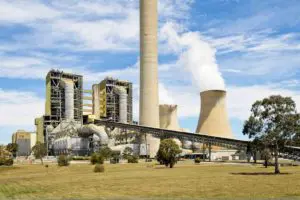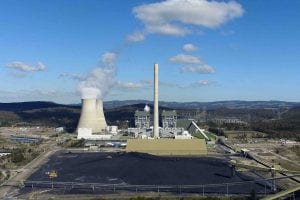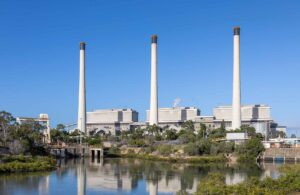It’s too late for a gradual transition out of fossil fuels, and Australia must draw up a plan to stop coal generation by 2030, and put a moratorium on new coal mines, according to a major report authored by professor of economics at The University of Queensland, John Quiggin.
“Australia’s transition away from excessive carbon pollution must begin with an urgent and coordinated phase-out of thermal coal production and use,” professor Quiggin says in the report published by the progressive think tank The Australia Institute.
“Fortunately, with enough advance notice and an appropriate transition plan, the thermal coal industry can be phased-out over time without any significant dislocation to workers.”
The report is timed as the Australian economy starts to emerge from a Covid-19 imposed hibernation, and outlines the opportunities that exist in transitioning the economy away from a dependence on coal, and into new clean industries, and the risks to the economy if it fails to do that.
It makes clear that it is now too late to allow for a gradual “market driven” transition away from fossil fuels, and that market intervention is now necessary to accelerate this transition.
“The magnitude of the climate crisis and the failure to respond in Australia means that a gradual, market-driven transition to a carbon-free economy is no longer an option,” the paper says.
Quiggin’s paper notes that there are rapidly emerging opportunities for decarbonising many of Australia’s industrial sectors, including the ability to replace uses of thermal and metallurgical coal with renewable alternatives.
“A well-planned and coordinated phase-out of coal would be based on targeted development of the renewable energy resources abundant in many coal-mining regions. It would include transition supports for early retirements, retraining for employees and economic diversification for affected communities,” Quiggin says.
The research outlines a series of crucial steps that are necessary for successfully and smoothly transitioning the Australian economy away from one fuelled primarily from fossil fuels, to a cleaner economy powered by zero emissions energy sources.
These steps include an immediate moratorium on new coal mines, and a cancellation of imminent projects like the Adani Carmichael coal mine currently being readied in Queensland.
A phased closure of Australia’s fleet of coal fired power stations, as well as Australia’s existing coal mines, will also be necessary, with a plan needed to ensure Australia’s power system can be transitioned to clean energy alternatives by 2030.
Energy-intensive industrial processes, like manufacturing and metals production, will also need to be transitioned to renewable energy alternatives, with the growth of a local renewable hydrogen industry to be key to replacing coal use in processes like metal smelting.
Finally, the research paper says it will be crucial to provide direct support for impacted workers and communities to transition livelihoods to new industries, allowing communities built around the fossil fuel sector, to re-skill in new industries.
While some workers in energy related sectors may be able to transition into new jobs in the renewable energy sector, Quiggin warns that not all impacted workers will be able, or necessarily want, to do so. A diversified approach to training and re-skilling will be necessary.
“A fair and orderly phase-out of thermal coal from Australia’s economy is both essential and economically feasible. Australia can end its production and use of thermal coal by 2030, while protecting the interests of workers and communities, at a very modest cost. The costs of not acting, by contrast, are both huge and obvious,” the report concludes.
It also notes that carbon pricing is still necessary to ensure that emissions are reduced across the economy as a whole. “A carbon price of at least $A50/tonne should be introduced as soon as possible, and increased to at least $A75/tonne by 2030.”
The Australia Institute’s climate and energy program director, Richie Merzian, says there would be greater benefits in a planned transition, compared to the significant costs of approaching the end of coal without a strategy for transitioning workers and communities to new industries.
“Through a managed transition, Australia can wean itself off coal by 2030, while also protecting the interests of workers, communities and the economy at a very modest cost. The costs of not acting, by contrast, are both huge and long-term,” Merzian said.
“A well-managed phase-out of coal would be the best way forward, but it can only be achieved through a coordinated approach involving the private sector, government and the unions who represent workers.”






